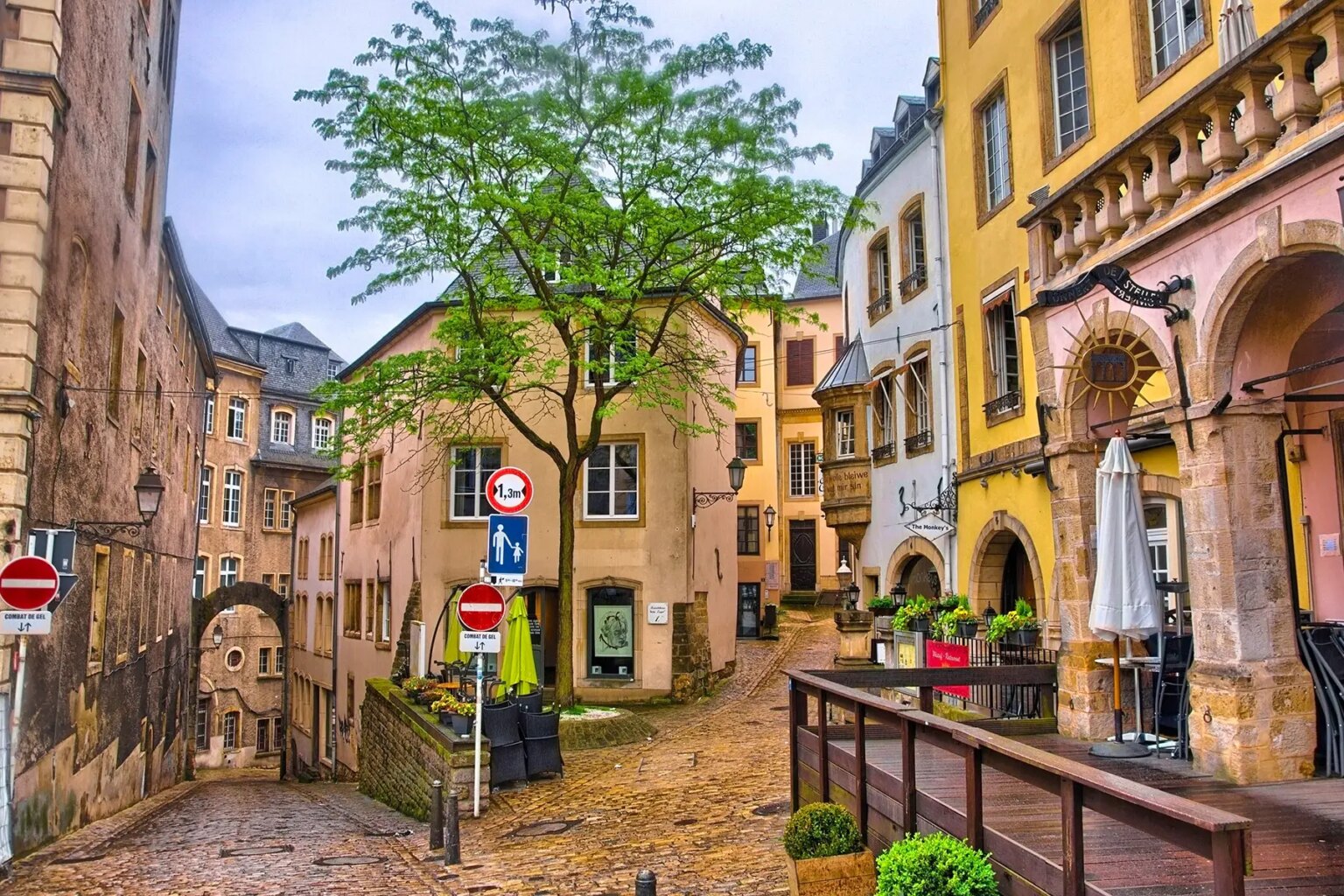Beginning a new chapter in a new country like Luxembourg can be exciting, but it also comes with a long list of to-dos. Before your arrival, you have to do plenty of research on your new home, find out how to move your belongings, sort out any immigration issues, and perhaps start looking for a job.
However, during your first week in Luxembourg, you’ll soon find a whole new to-do list waiting for you. From finding a new home or school for your little ones to exploring the local museums, or figuring out how to date locally, there are lots to do. To help you out, we’re giving you a rundown of the most important things to do during your first week in Luxembourg.
Airbnb
Looking for a home away from home in Luxembourg? Airbnb is a global online community offering accommodation and experiences. They have a selection of over 6 million unique properties available through their secure booking service. So, wherever you're moving in Luxembourg, Airbnb has the right short-term let for you.
1. Look for somewhere to live
Perhaps the most important thing you’ll do during your first week in Luxembourg is looking for somewhere to live. Most expats choose to live in Luxembourg City for convenience, and this is certainly a good choice. Some of the neighborhoods you might want to consider include Limpertsberg, Howald, Strassen, Merl, and Belair.
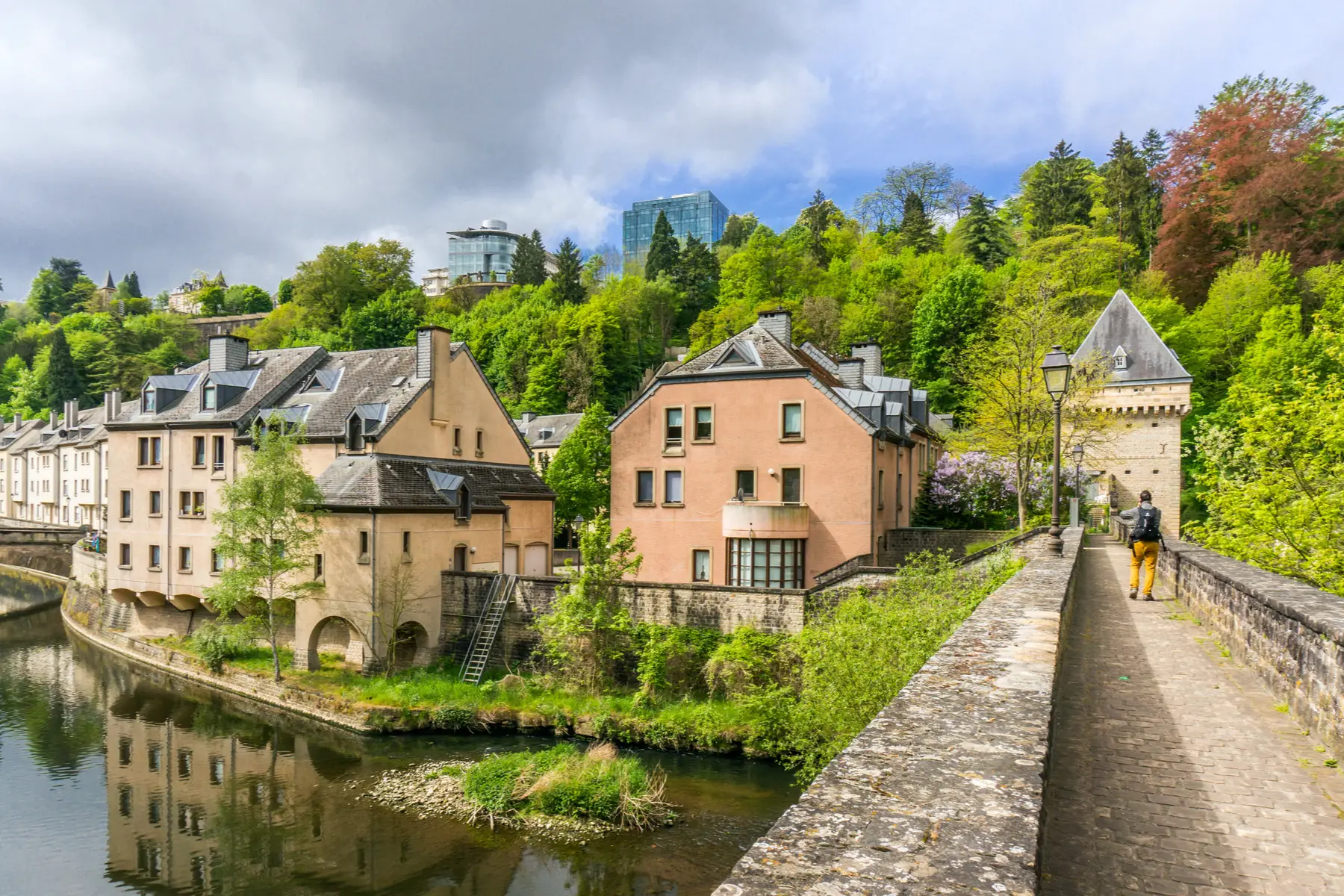
Housing is expensive here, meaning many expats prefer to rent rather than buy. In addition, high transaction fees for buying property can be off-putting. However, if you are thinking about buying, house prices as of 2022 come in at around €4,518/sqm. This means a studio flat may set you back around €250,000, while a four-bedroom family home could cost €665,000. You will also need to put down a deposit of about 20%-25%. However, rentals are more affordable, ranging from €876 to €2,500/month, depending on the property and its location. If you’re looking for somewhere more temporary, check out short-term accommodation on sites such as Airbnb.
2. Register as a resident
All adults should technically carry ID and proof of residency rights in Luxembourg, so it’s best to sort this out during your first week. EU/EEA citizens can stay in Luxembourg for up to three months. After that, though, they must meet certain requirements to stay, such as being employed and having health insurance. They will also need to get a registration certificate from a communale within three months of arriving in the country. Arrivals from outside the EU/EEA will need to register in line with their visa and immigration requirements.
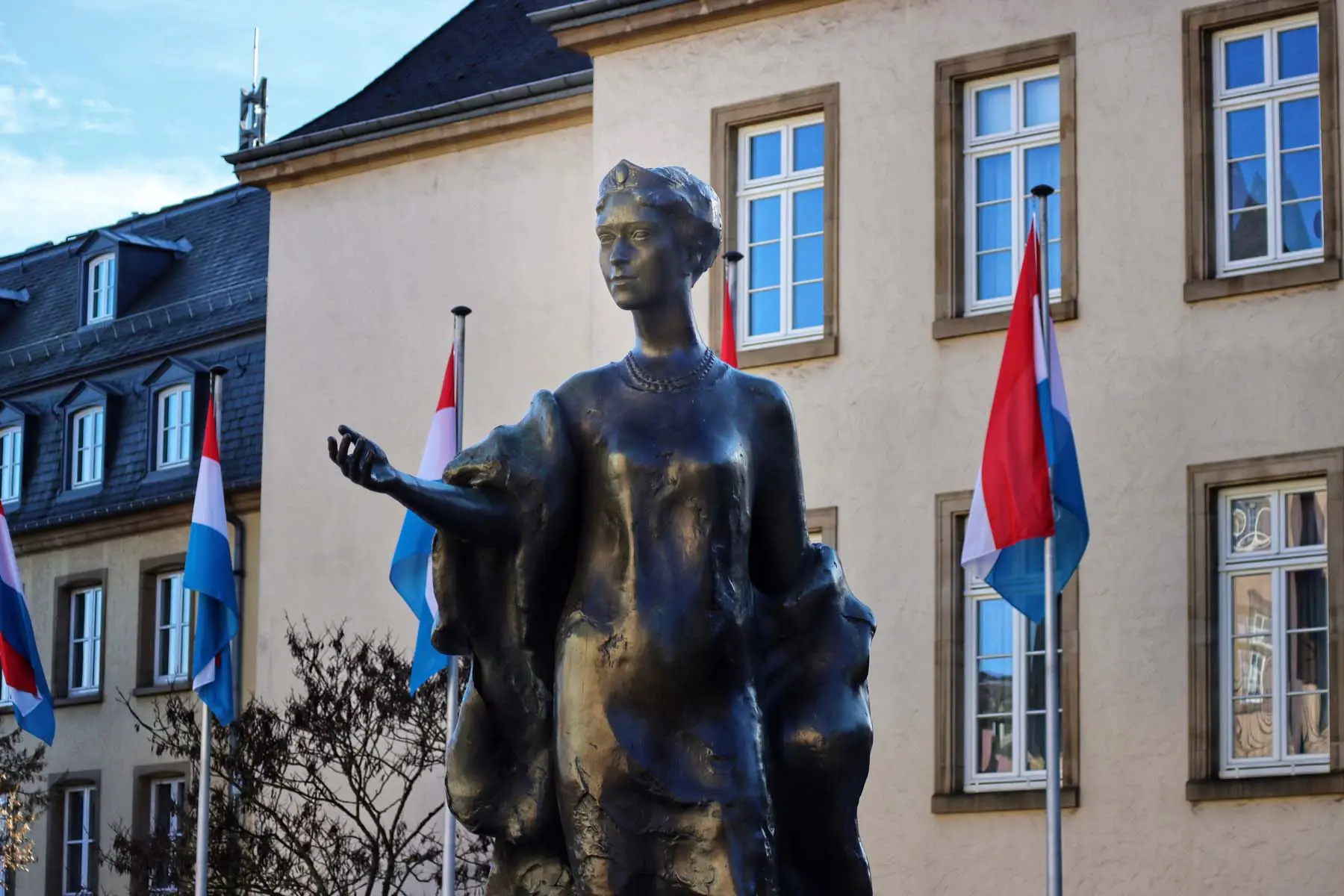
Be aware that anyone staying in Luxembourg for more than a year will need to get a foreigner’s identity card and register with a communale. To do this, you’ll need to fill out some forms and present your passport, residence or work permit, proof of finances, medical certificate, and tax stamp. Establishing residency during your first week in Luxembourg also means dealing with taxes. If you are employed by a company, then they will usually pay your tax directly from your salary each month. However, the government introduced an ‘impatriation premium’ in 2021, which offers a tax exemption for certain qualifying expats. For more information, read our article on taxes in Luxembourg.
3. Sign up for healthcare
New arrivals will be pleased to learn that Luxembourg’s healthcare system is one of the best in Europe. The local state-funded healthcare system offers basic medical coverage to all residents. However, you will need to register with Luxembourg’s social security system and make health insurance contributions to use it. Alternatively, many expats also choose to take out private health insurance. Insurers operating in Luxembourg include:
Private policies typically offer more coverage than state health insurance. It can be particularly useful for things like hospitalizations in private rooms, dentists, and optometrists.

Healthcare isn’t the only thing you need to consider during your first week. in Luxembourg. If you own a car and drive in the country, you will also have to have compulsory car insurance. However, there is a wide variety of optional insurance policies available to cover dental, home and contents, pets, life, and travel. If you own a company, then you can also get commercial insurance. There are some 295 insurance companies in Luxembourg, so you will find policies that suit your needs. For more information, read our guide to insurance in Luxembourg.
4. Open a bank account in Luxembourg
Finance and banking are the lifeblood of Luxembourg. Though the national bank is the Banque Centrale du Luxembourg, the tiny principality has as many as 136 different banks. A quarter of these are foreign entities, mostly from Germany, France, and Switzerland. This means you’ll be spoilt for choice if you choose to open a bank account during your first week in Luxembourg.
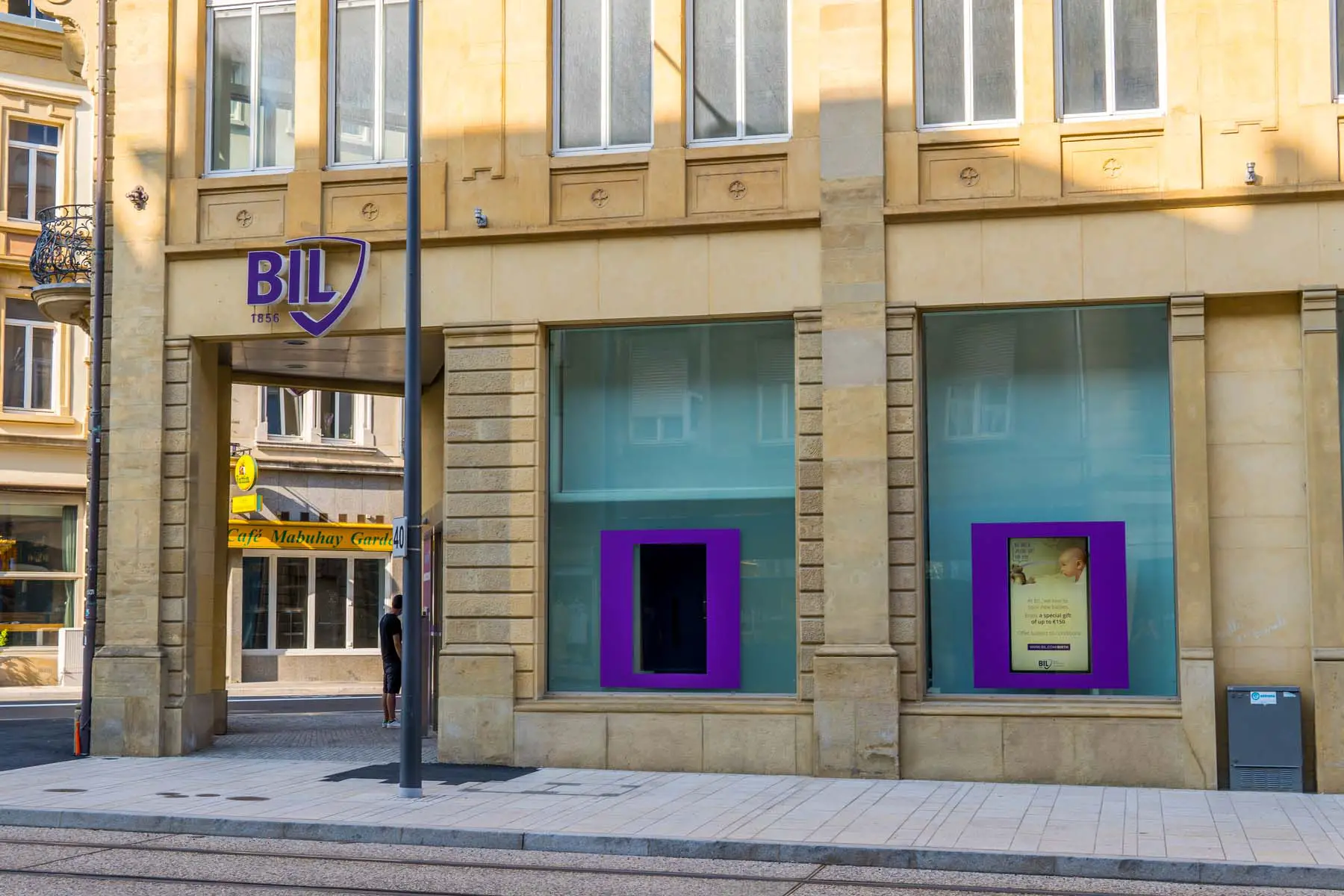
Thankfully, opening a bank account in Luxembourg is relatively straightforward. In most cases, you need to visit a bank branch to open your account, although some offer online openings. In either case, you have to provide ID and proof of address. You may also have to show a Luxembourgish employment contract or tax number. Alternatively, you may opt for a mobile bank, such as:
Furthermore, if you need to transfer money from back home, then check out money transfer platforms such as CurrencyFair and Wise.
5. Find a job
Your first week in Luxembourg will likely be filled with a lot of life admin. Unless you’ve relocated with work, you’ll also need to find a job. The Grand Duchy has a multicultural and multilingual job market, and being able to speak French or German—or indeed, Luxembourgish—will be very helpful. Going online is one of the best ways to look for a job here, and sites like Monster, jobs.lu, Indeed, Jobs in Luxembourg, and Multilingual Vacancies are popular.
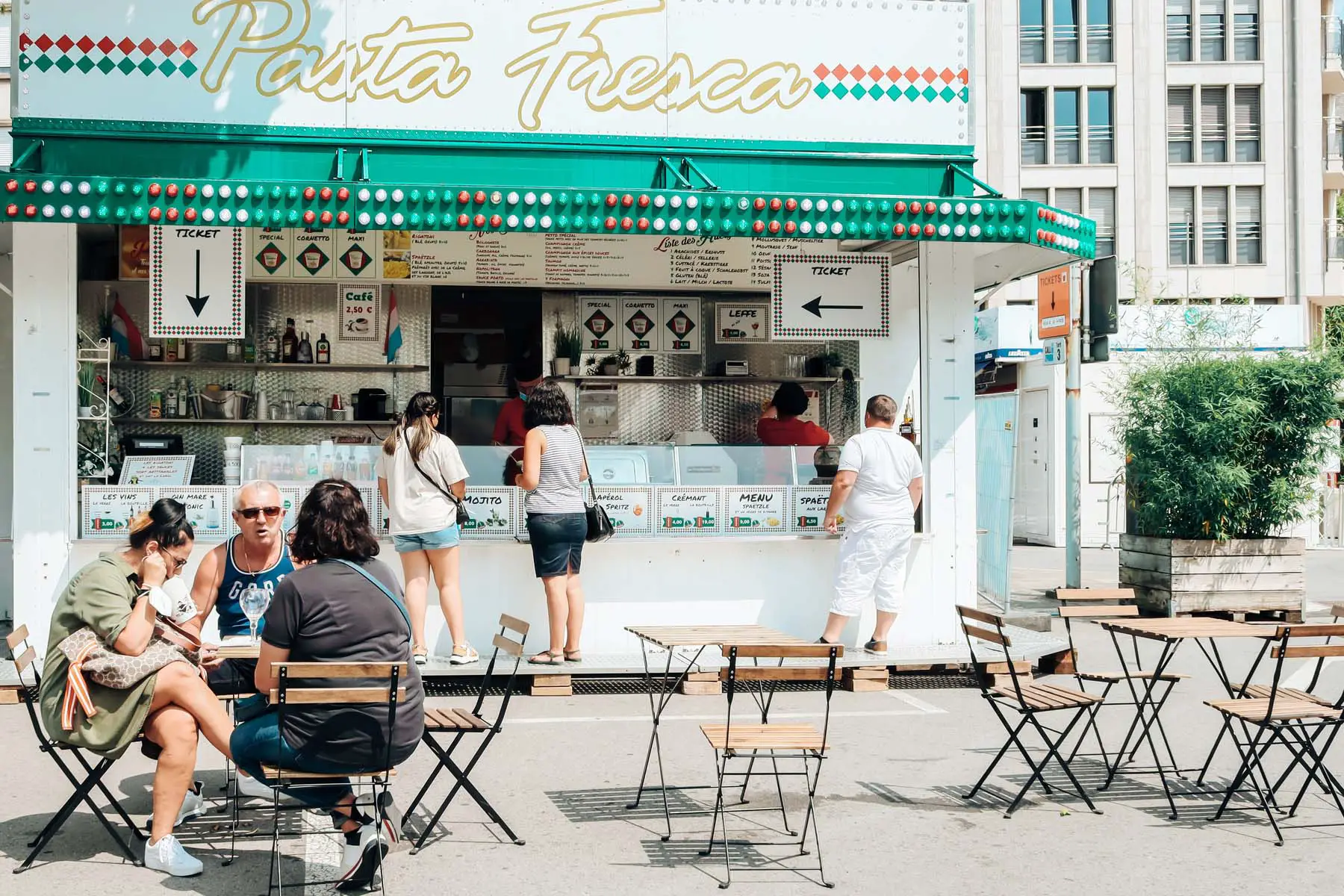
You will also need to ensure your job application is appropriate for Luxembourgish employers. This means creating a CV with a photo and writing a cover letter that shows why you are suitable for a role. Because the country is so multilingual, be sure to use the language the original job description is written in. If you get an interview, then you can expect this to be a formal meeting. As such, be sure to dress smart, arrive ahead of time, and do your research beforehand.
6. Figure out the transportation system
Luxembourg may be a small country, but it has a surprisingly well-connected transport infrastructure. And, as a new resident, you will want to familiarize yourself with the local transport system during your first week in Luxembourg. Interestingly, most public transport is free here, except for transport that crosses borders into a neighboring country. As such, this can be a boon in a country that struggles with a high cost of living.
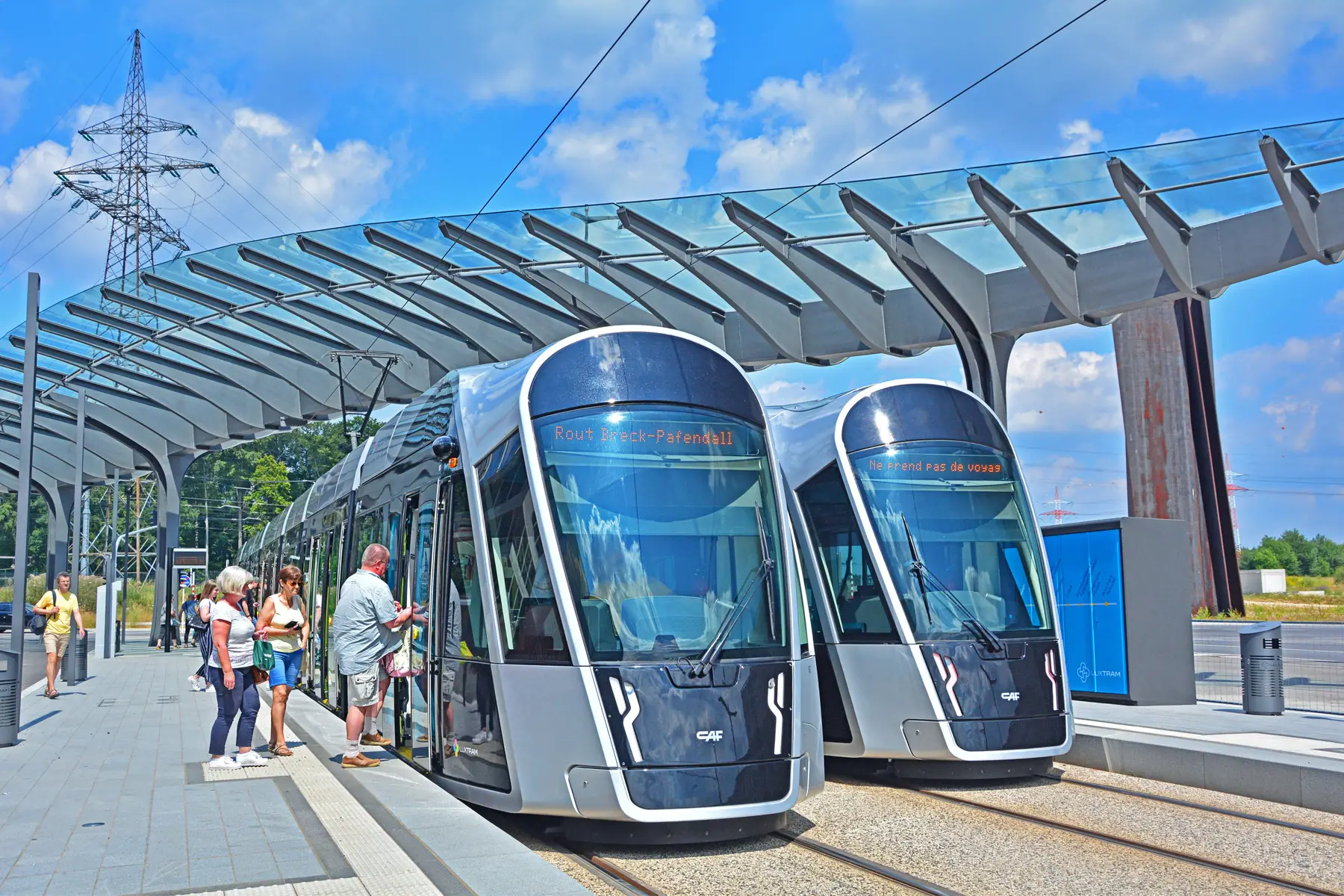
Fancy hitting the open road? Or at least, the streets of Luxembourg? No problem. The country has a great road infrastructure that includes a well-planned motorway network, making it very easy to drive. Just remember you have a valid driver’s license and all the insurance you need to drive legally. And, if you’re importing a car, make sure you follow the customs and roadworthiness procedures.
7. Get yourself connected
If you’ve been lucky enough to find a new home during your first week in Luxembourg, you’ll need to start setting up the house. One of the most important things you’ll need to do is get your home connected to electricity and gas. Utilities in Luxembourg can be confusing for new arrivals, so its best to do some research before signing up. You’ll also need to sign up with your local water supplier. Some rental homes may have these connections sorted. However, some will not. And if you’re looking for a flatshare, you will likely need to split the utility costs with your housemates.
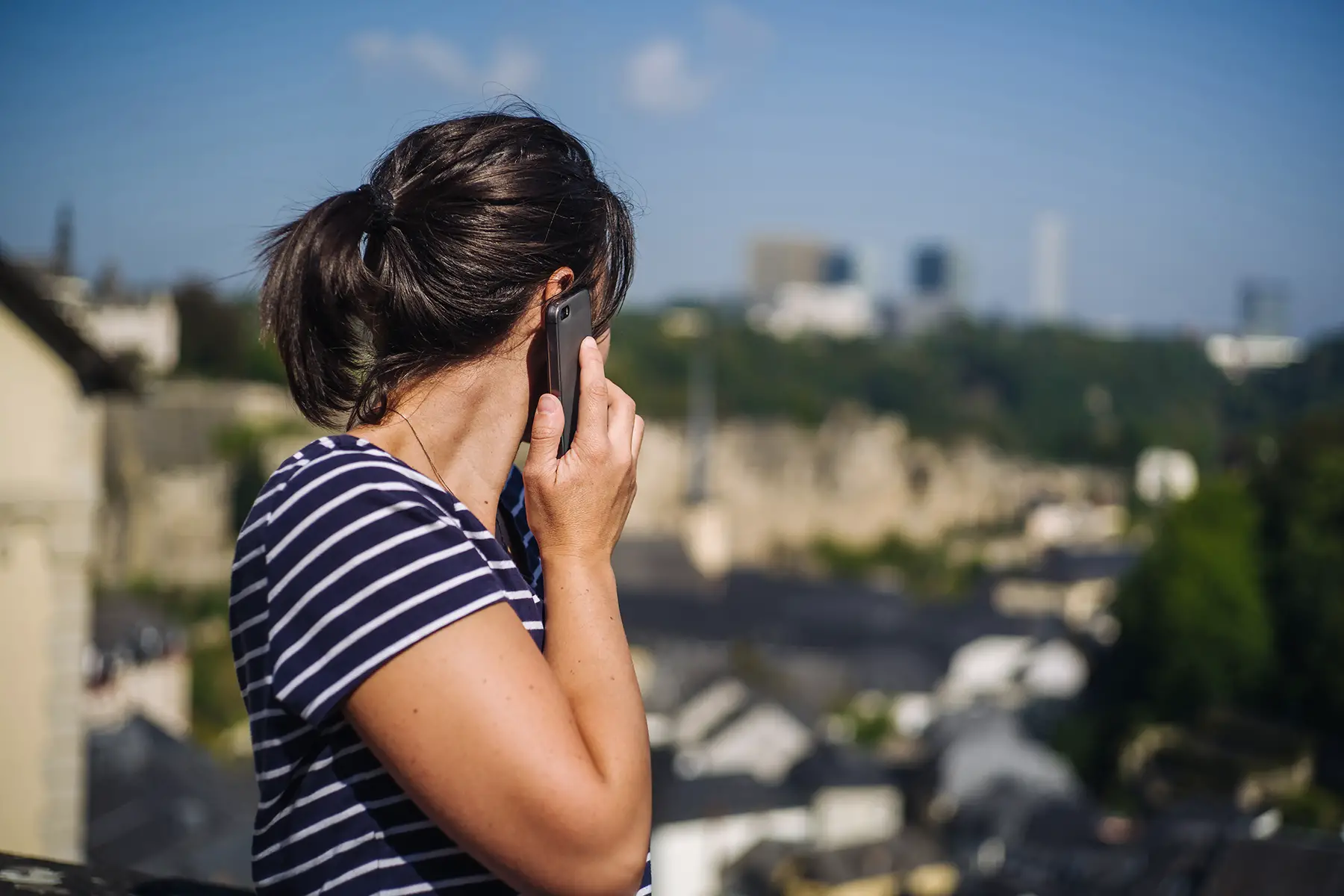
You may also want to get home phone, internet, and TV connections for your new home. This will ensure you can access all the latest news, information, and entertainment from around the world, as well as keep in touch with family back home. However, be aware that many mobile operators in Luxembourg offer bundle deals with great discounts if you get your mobile, home phone, internet, and TV with them. Be sure to compare deals with POST Luxembourg, Tango, Orange, and Eltrona. Once you pick a provider, simply sign up online or in a local store with your ID, proof of address and residence, and your local bank account details.
8. Get the kids in school
If you have kids in tow, then your first week in Luxembourg is going to include taking steps to settle them in properly. As such, one of the major things you will need to do is find a school. In Luxembourg, public schools are free and mandatory between the ages of four and 16. Parents usually register their kids at a school three months before the school year begins. To do this, they go to the commune’s education department with residency certificates, the child’s birth certificate, and the required registration form.
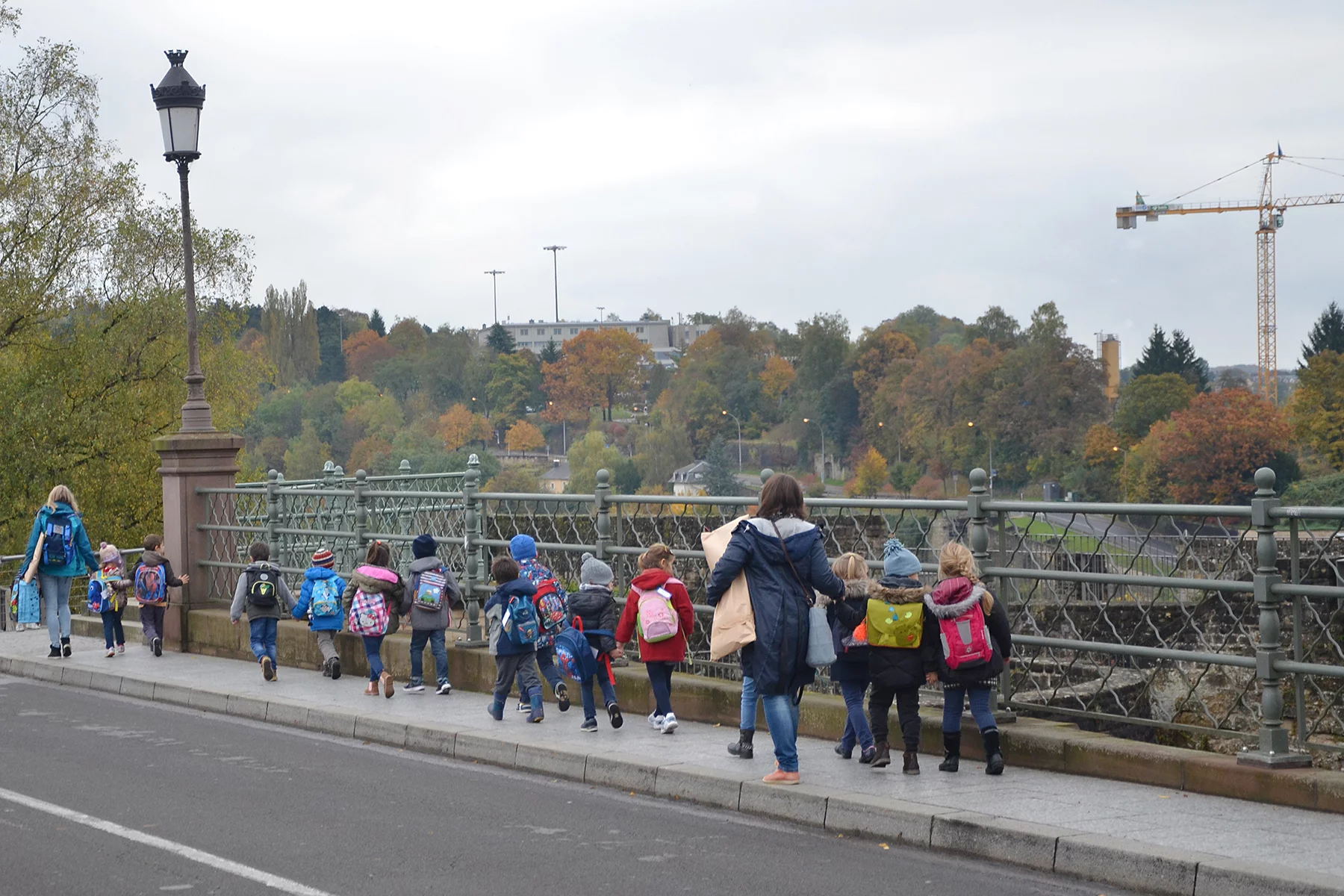
However, many expats choose to enroll their children at private or international schools. This is because these typically offer the same curriculums as you would find back home, including IGCSEs and the International Baccalaureate diploma. For younger children, Luxembourg also offers a range of childcare options. Additionally, there are government subsidies and daycare funding available, which you may be eligible for. Many families use a daycare crèche for kids under four years, though some employ a nanny or au pair.
9. Learn the languages
A facet of Luxembourg’s inherent multiculturalism is its languages. Although the local language is Luxembourgish, many workplaces and schools use French or German. Which one you will need, though, depends on exactly where you live and what you do. This is because, at the time of the country’s founding, French was the most common language. As such, this is the language used for official communications. However, bilingualism was enforced in 1843, and German is equally prevalent now. Having a basic understanding of French or German will ease your first weeks in Luxembourg.

There are many government and non-profit organizations where you can learn any of the three languages in Luxembourg. However, expats often prefer private language schools, such as Berlitz, Inlingua, and Prolingua. Listening to the free podcasts by Radio Lingua Network or accessing online tuition by providers like Skype Language School can quickly get your language skills up to scratch. Similarly, there are a number of great language apps you can download in Luxembourg.
10. Get out there and enjoy Luxembourg
Familiarizing yourself with the local culture and etiquette before you arrive can be a great way to ensure your first week in Luxembourg goes smoothly. However, nothing will compare to simply getting out there and exploring your new home for yourself. After all, you (probably) will only move to Luxembourg once, so don’t spend your entire time comparing energy prices online!
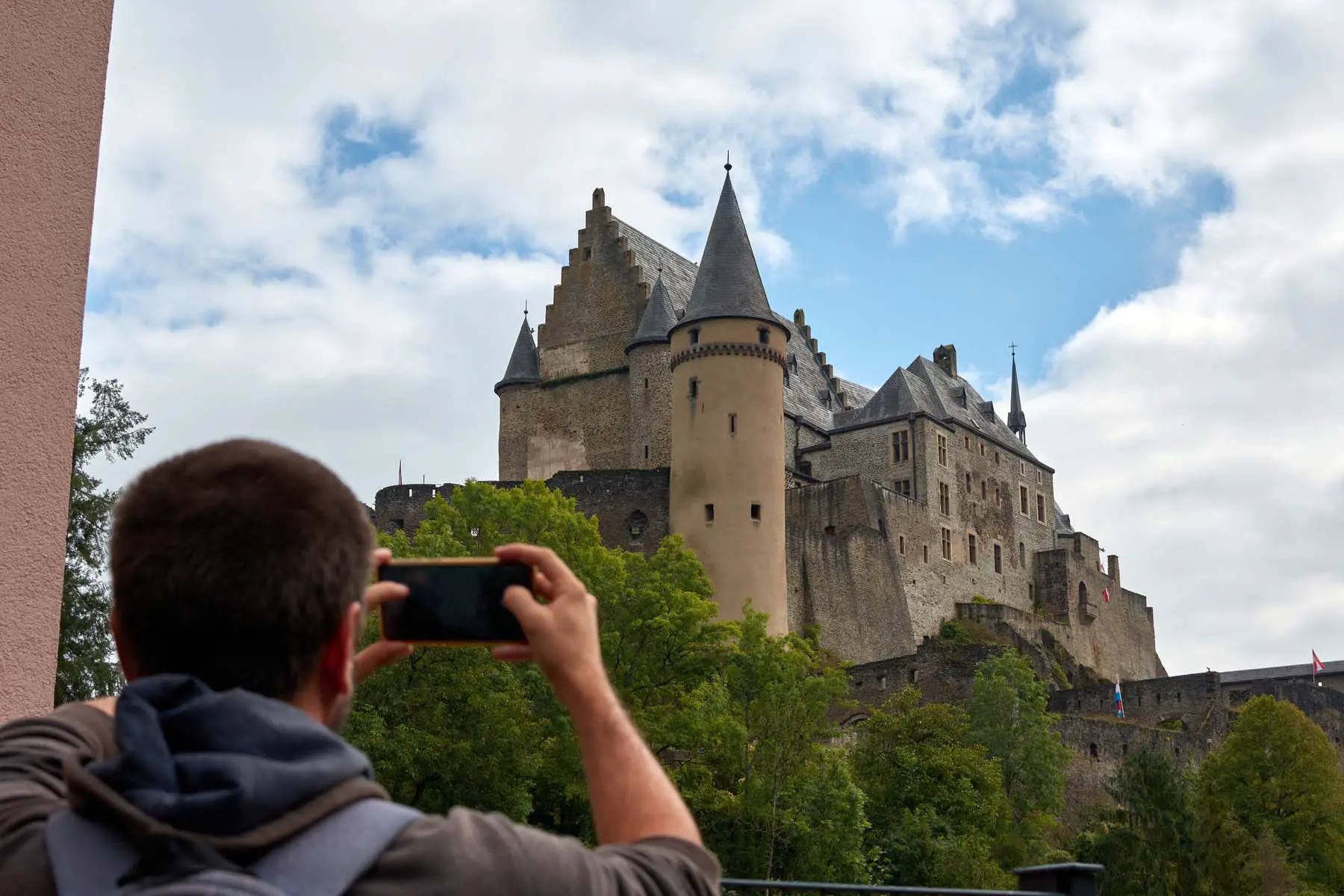
Whether it’s exploring the capital’s many bars and restaurants, hitting a local museum, or heading out into the Luxembourgish countryside, there’s plenty to keep you busy. So what are you waiting for? Get out there are experience this unique Grand Duchy today.
